As Miami Beach spring break begins, ‘law and order’ plan exposes political tensions
Miami Beach leaders have sought to portray a unified front in their efforts to crack down on spring break chaos in March, declaring that the city is “breaking up with spring break” and detailing severe measures to shut down the party, ranging from parking garage closures to Slingshot rental bans.
“Enough is enough, and that’s why we’re so united,” Mayor Steven Meiner said at a Feb. 15 press conference.
But at public meetings and behind the scenes, political tensions have contributed to a thorny planning process and plenty of second-guessing in the final days before March, raising questions about whether officials are truly in sync and prepared to tackle the complex challenges that spring break presents.
City commissioners on Feb. 21 voted for substantial changes to a previously approved parking plan, sending administrators scrambling to interpret the new measures and to staff the city’s parking facilities — an 11th-hour move almost a year after officials had begun discussing plans for March 2024.
The commissioner who proposed the changes, David Suarez, later suggested “political pressure” had prevented the city administration from pursuing certain safety measures and left it up to the commission to propose them, as Suarez did for parking garage closures. Tensions between part-time elected officials and full-time city administrators have been rising in part because of Suarez’s confrontational style, and four high-ranking city officials recently announced they are leaving their posts after spring break concludes.
In a statement, city spokesperson Melissa Berthier denied that politics have “played any role in the administration’s approach,” adding that “we always welcome City Commission input.”
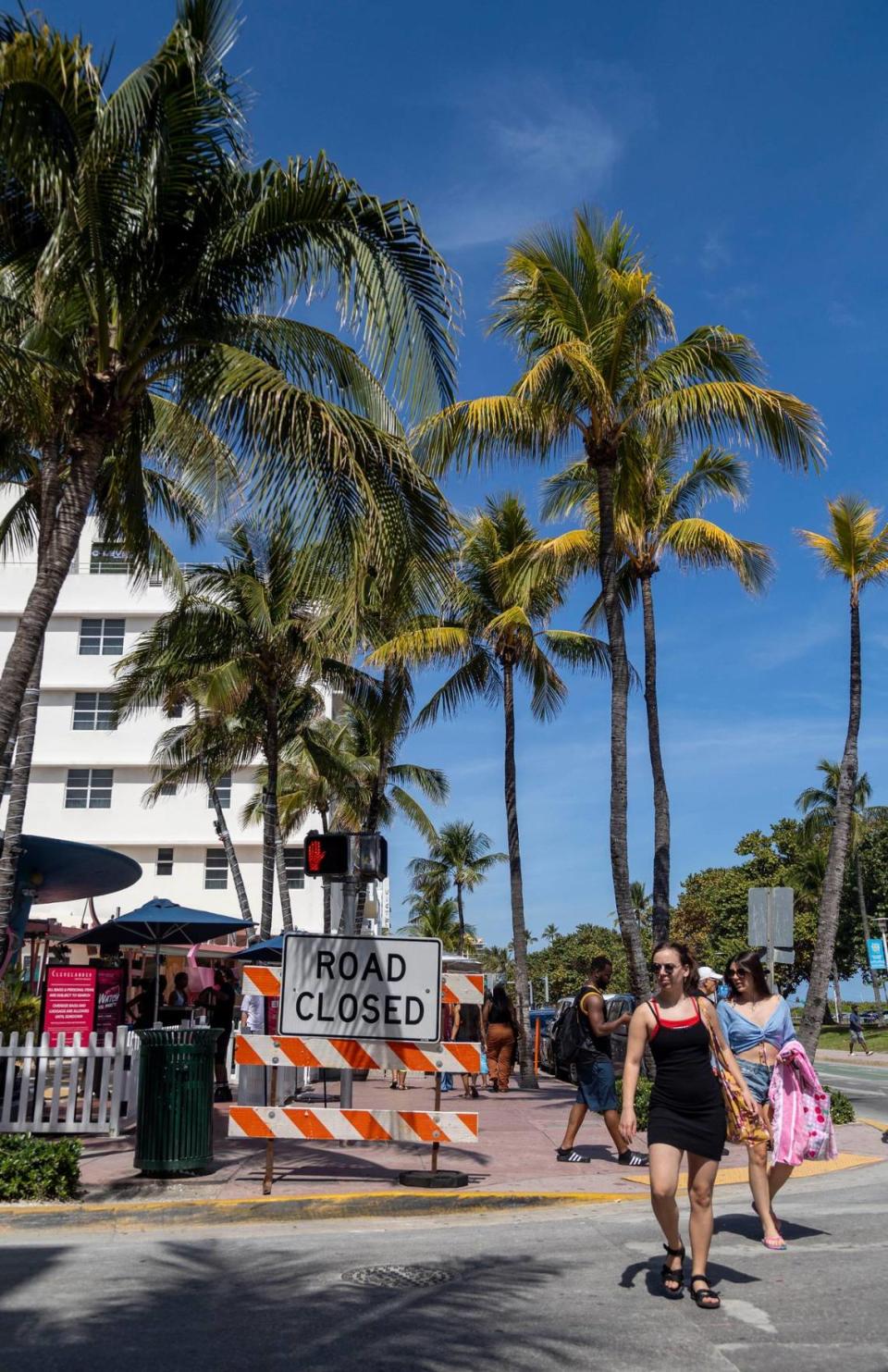
Meanwhile, the president of the Miami Beach police union has publicly skewered the administration’s spring break plans, saying in a Feb. 15 Instagram post that the city is “doing nothing different” than it has in the past and is “refusing to use things that have worked,” such as a South Beach traffic loop that was previously deployed during Memorial Day weekend. He also criticized the city’s plan to close beach entrances on Ocean Drive at 6 p.m., saying people shouldn’t be prevented from entering a public beach “barring an emergency.”
“The men and women of the union are tired of Diet Coke versions of operational plans that don’t work,” Fraternal Order of Police President Bobby Hernandez told the Miami Herald in a text message. “The residents have been extremely patient and it’s time to make the tough decisions.”
Police department spokesperson Christopher Bess said police officials met Monday with the union’s executive board to talk about the traffic plan. Bess said all parties involved, including Hernandez, reached a consensus that the city’s current plan, a modified version of the traffic loop, “is the most optimal choice.”
Hernandez told the Herald on Thursday that he still prefers a stricter version of the traffic loop that would prevent many drivers from even entering the entertainment district, but was told that the department doesn’t have the resources to staff it.
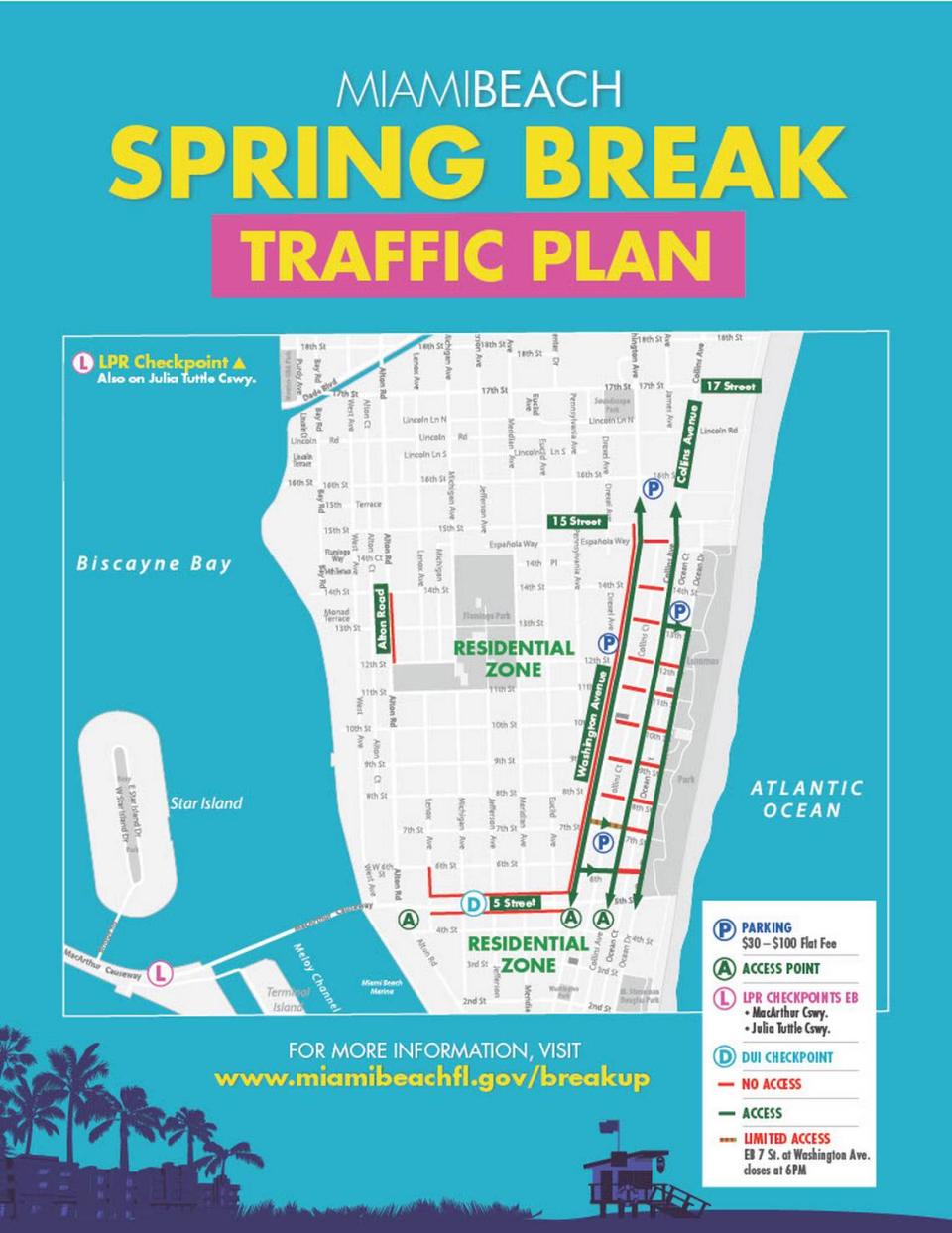
‘Law and order’
This year’s spring break comes on the heels of a November election in which voters picked a new mayor and three new commissioners, all of whom campaigned on improving public safety and eliminating the violence and negative headlines that have become synonymous with spring break in Miami Beach.
In each of the past two years, the city has imposed midnight curfews in response to shootings amid large crowds on Ocean Drive. In 2021, police used SWAT teams as they tried to enforce an 8 p.m. curfew, one year after the local NAACP branch had decried an aggressive response by police against Black spring breakers as racist.
Meiner, a former commissioner who billed himself as the “law-and-order” mayoral candidate, will face his biggest test so far after his predecessor, Dan Gelber, tried for years to calm spring break chaos, which never subsided.
At the Feb. 15 press conference, Meiner said he is confident in the city’s plan and hopeful for a successful spring break, which would mean “having a March without violence.”
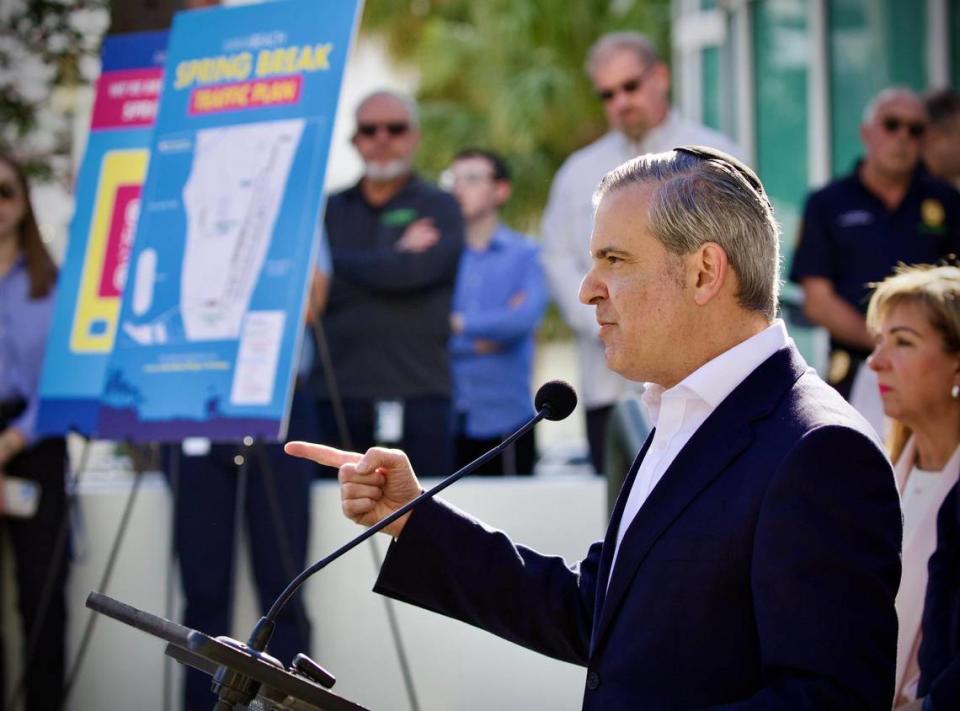
Commissioner Alex Fernandez told the Herald that, despite the last-minute changes and some disagreements over the best approach, he doesn’t believe political factors are hindering the process.
Fernandez, who was elected in 2021, said officials have made “bold moves” to enact the “harshest regulations ever imposed for Miami Beach during spring break,” including the closure of public parking garages and lots and a ban on sidewalk seating at Ocean Drive cafes during the second and third weekends of March.
“I don’t see this really being political, other than we’ve all made a commitment to public safety,” Fernandez said. “To the extent that it’s political, it’s because of the expectation our community has to once and for all free us from spring break.”
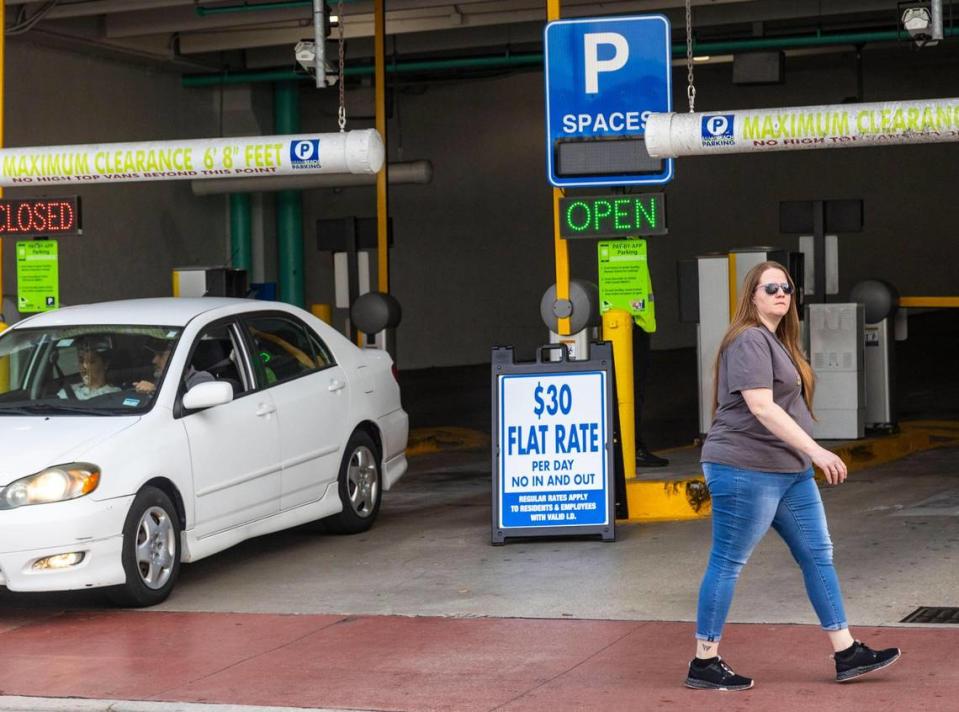
‘Not the ideal way to do business’
Even as plans are underway to address the crowds, some officials — including those who support strict measures — have expressed reservations about the process.
When the City Commission voted Feb. 21 to close parking garages and lots in South Beach, Meiner voted in favor but said it was “not the ideal way to do business” and should not have been decided “on the fly.”
Last March, Meiner had urged city officials to set up a secured perimeter with metal detectors around Ocean Drive in 2024, a step he said was crucial to prevent another shooting. After two deadly shootings on crowded Ocean Drive during last year’s spring break, Gelber, the former mayor, said it was clear that “even an unprecedented police presence could not prevent these incidents from occurring.” But the perimeter concept didn’t materialize because the city was unable to nail down a ticketed event that would have been legally required to set up metal detectors around a public street.
The City Commission also voted last March to support a curfew in South Beach and an earlier last call for alcohol during spring break in 2024. But in late January, the new-look commission declined to address liquor sale hours, with some officials saying they didn’t feel it would be an effective measure. A curfew could still be implemented this year if City Manager Alina Hudak chooses to declare a state of emergency at some point.
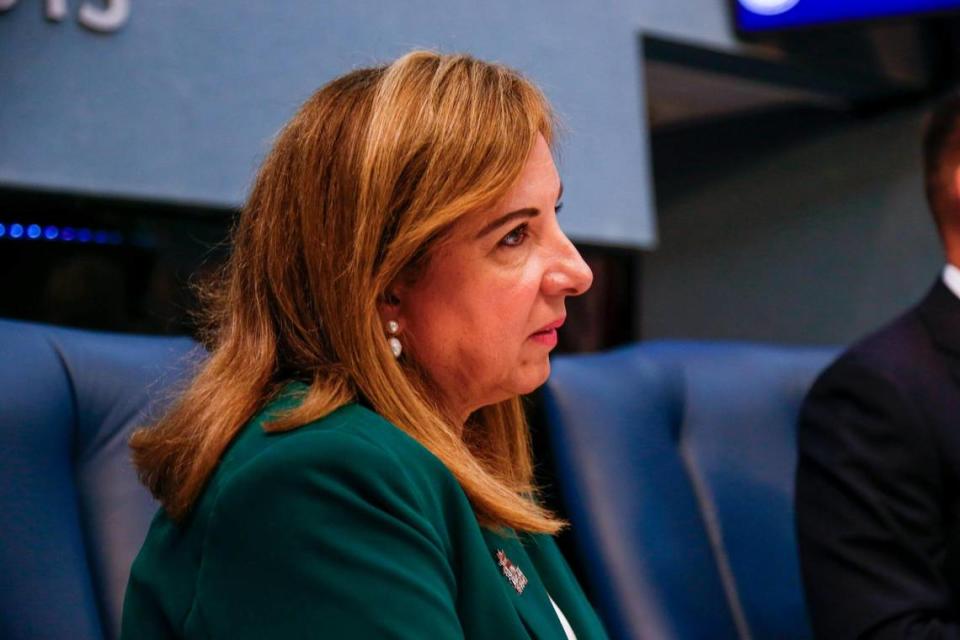
At a Feb. 23 meeting to discuss spring break plans, Vice Mayor Kristen Rosen Gonzalez said the city “probably should have” rolled back alcohol hours, a step it has taken in the past. “I think that’s the biggest mistake,” she said.
Rosen Gonzalez suggested that commissioners “didn’t get to vet” certain spring break plans because of a transition period after the November election. But Commissioner Tanya Katzoff Bhatt disputed that characterization, noting that several commission meetings had been held to talk about the city’s strategy.
“We are five minutes from the beginning of spring break,” Katzoff Bhatt said. “Everyone has the same goal, no one is pulling punches. We are united in making this safe, pleasant and fun.”
At the meeting — a “sunshine meeting” that wasn’t video recorded by the city and at which commissioners could not take action through a formal vote — Suarez criticized the city manager and the police department for not sending representatives to be there. Meiner, who observes the Sabbath, also wasn’t able to attend.
Katzoff Bhatt suggested the City Commission could reconvene Feb. 28 to take any final votes on additional safety measures. But she later withdrew that request and the special meeting didn’t take place.
“The narrative that we haven’t had enough time to discuss specific ideas during our commission meetings is nonsense,” Katzoff Bhatt said in a text message.
Suarez said at the sunshine meeting that he wanted to ensure the city was taking every step to prevent violence.
“I wanted to make sure that we clear our conscience,” he said.
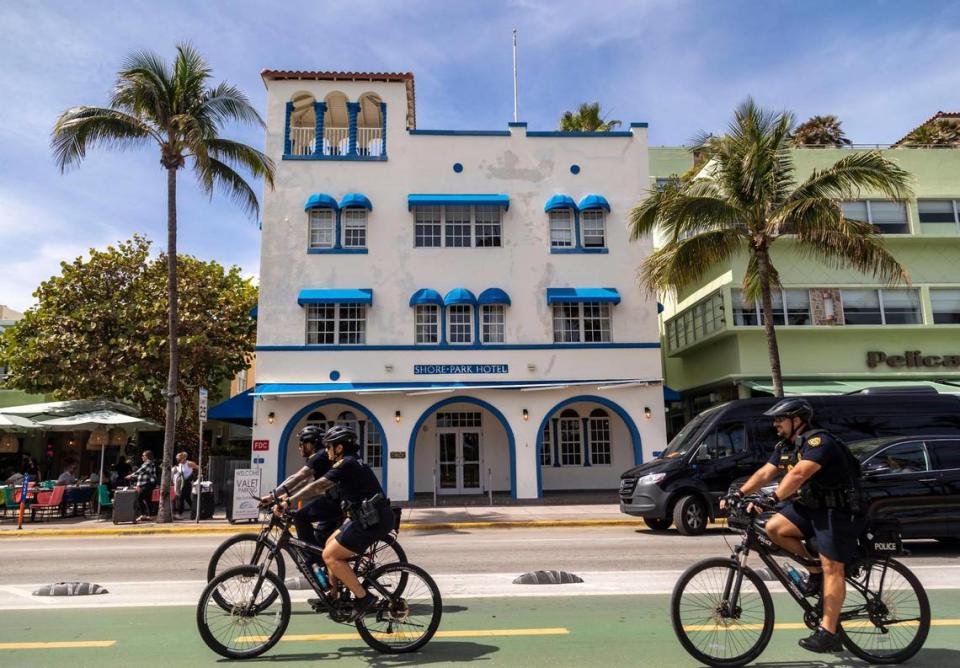
Business owners also express qualms
City officials aren’t the only ones questioning parts of the plan. The Ocean Drive Association, a collection of business owners on the strip, said in a letter to city officials Tuesday that it had “profound public safety concerns” about some components.
Removing sidewalk seating during two peak weekends will mean more spring breakers walking near hotels and restaurants on the west side of Ocean Drive, the group said, putting guests and workers at risk if there’s a stampede, something that has happened in recent years past. The association also questioned the city’s decision not to roll back liquor sale hours, saying late-night operators and alcohol sales contribute to a “club” atmosphere on the street.
“We note that, while we are not public safety experts, we are experts about establishing and preserving a safe environment in our places of business,” Executive Director Ceci Velasco wrote.
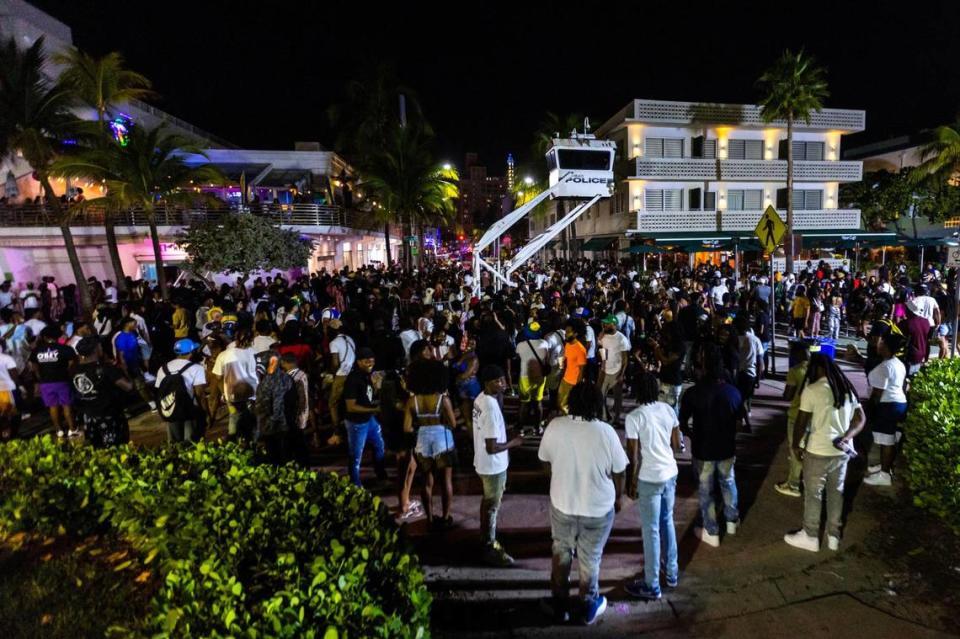
Several hoteliers or managers declined to comment on the record for this story, saying they fear reprisal from political leaders. But those who did expressed uncertainty over whether the city’s measures this year were rigorously thought-out or will have the intended impact.
At the same time, business leaders expressed appreciation that the status quo isn’t being accepted and that the city is trying to change the pattern of violence and bad behavior each March.
“We do not want our city and destination associated with this,” said Mutluhan Kucuk, complex managing director for Loews Miami Beach Hotel on Collins Avenue.
Some business owners say they haven’t been properly involved in the city’s process. Dan Binkiewicz, co-owner of Sweet Liberty, a cocktail bar on 20th Street, said city officials have perpetuated an antagonistic relationship with businesses and that, in the discussions surrounding spring break measures, “it did not feel like there’s a place for small business owners.”
“It does not feel like we’re ever in this together,” Binkiewicz said.
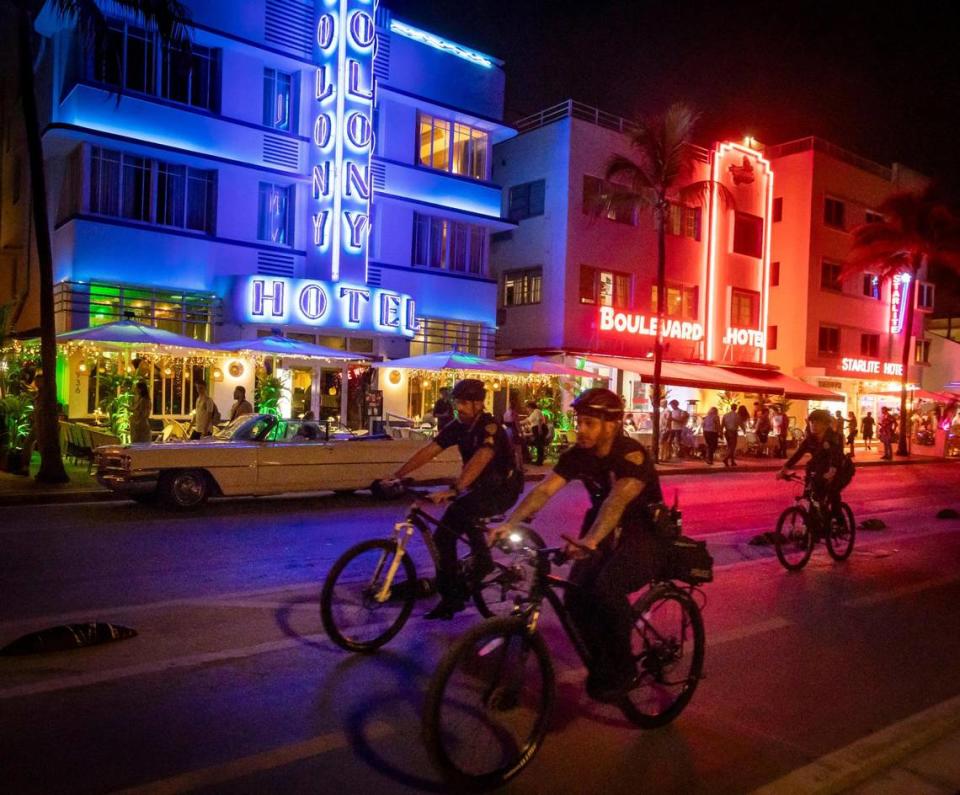
Plans set into motion
All of those political tensions and disagreements now hang in the backdrop as March begins and the city’s plans start to take effect.
Beginning this weekend, the city will charge $30 for anyone except residents and employees to park at public garages and lots south of 42nd Street; double the towing rate in South Beach for nonresidents to $516; and limit beach entrances on Ocean Drive to Fifth, 10th and 12th streets before closing those entrances at 6 p.m.
During the two following weekends, when the highest volume of visitors is expected, even more disruptive measures will go into place. Those include sweeping parking closures, motorized vehicle rental bans, license plate readers directed at cars entering the city and a DUI checkpoint on Fifth Street.
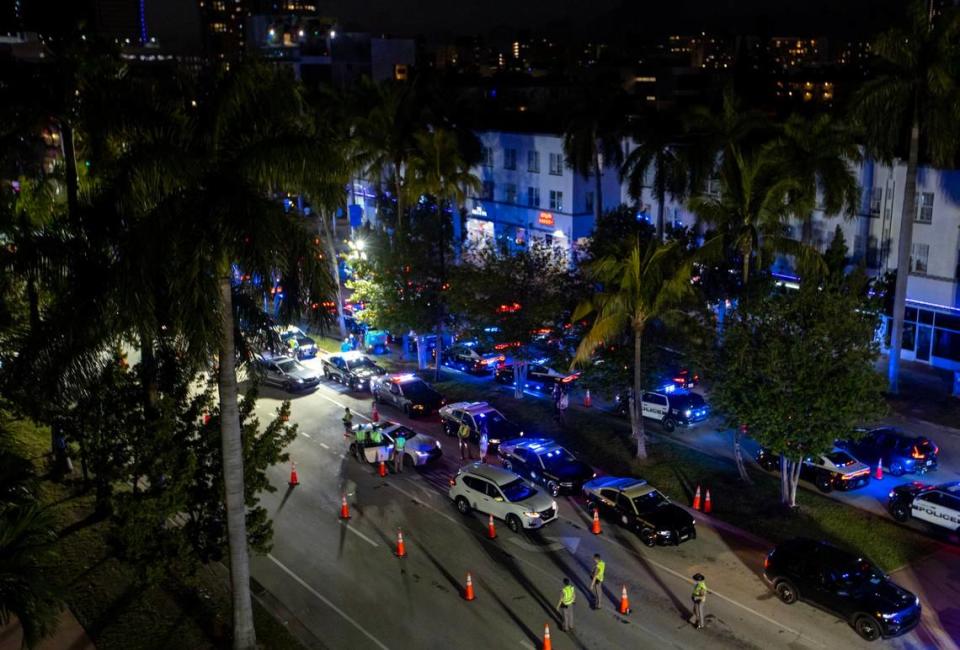
Ocean Drive will remain open to traffic, in contrast to plans from years past that have shut down parts of the road and opened it up to pedestrians, creating more space for crowds and a party environment that often included people drinking in the street. Reducing crowding on Ocean Drive might help avoid stampedes and could also be good for businesses if spring breakers move off the street and into bars and restaurants, said Joshua Wallack, chief operating officer of Mango’s Tropical Café.
“I think you’re going to see some benefit from this,” he said. “I don’t think we’re going to have some of the same problems.”
As in the past, the law enforcement presence will be massive. Police Chief Wayne Jones said at the Feb. 15 press conference that there will be more police in South Beach in March “than you’ve ever seen before,” which will include state law enforcement officers provided by Gov. Ron DeSantis.
Since taking office, Meiner has had multiple conversations with DeSantis, who has said he is eager to send state law enforcement officers to assist Miami Beach during spring break. This week, Meiner was in Tallahassee and said he met with officials from the Florida Highway Patrol and the Florida Department of Law Enforcement “to secure resources for spring break operations.”
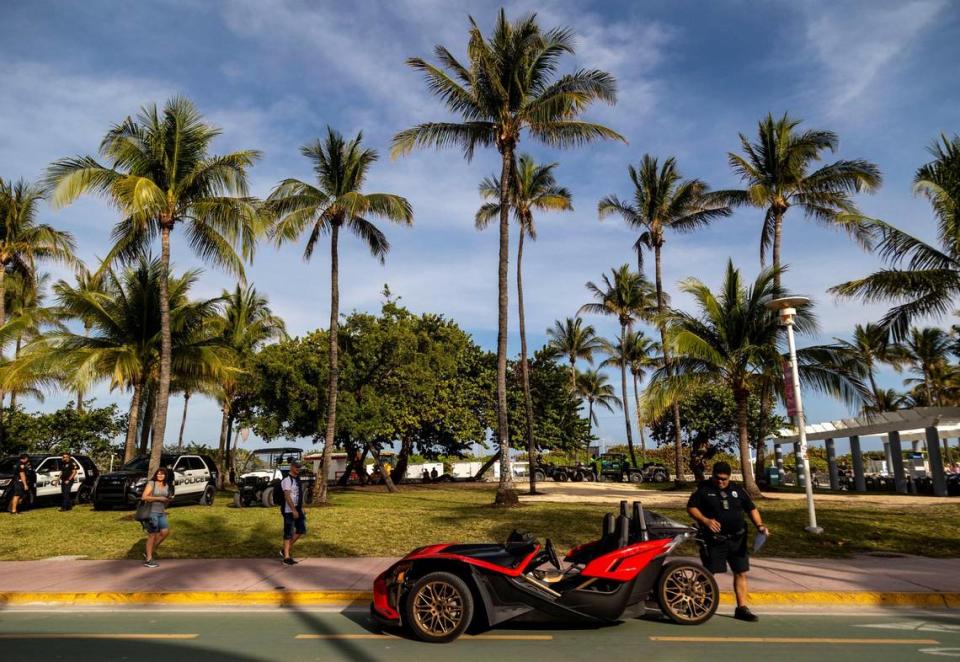
Commissioners voted last year to redirect more than $3 million that had initially been set aside for programming during spring break toward public safety measures, a shift in the city’s strategy that previously included concerts and activities.
Wallack said he disagrees with the city’s decision not to host events in South Beach this year. “It’s all defensive posturing to try to lock people out from coming there,” he said.
Like other business owners in the area, he expressed uncertainty about the weeks to come.
“We have no idea what to expect,” Wallack said. “This is the most intense lockdown of the city we’ve ever seen.”
More details of the city’s plans can be found at miamibeachfl.gov/breakup.


